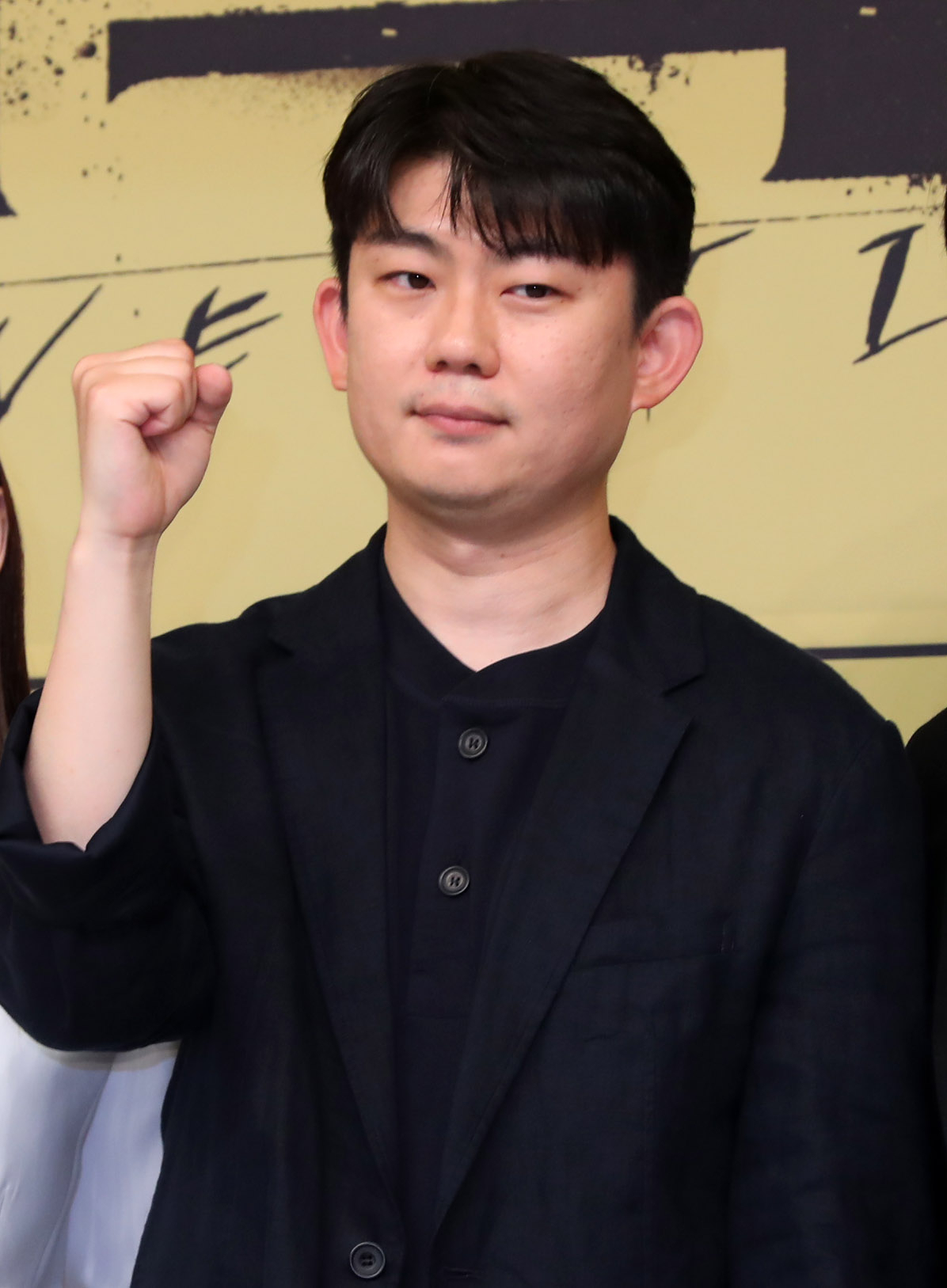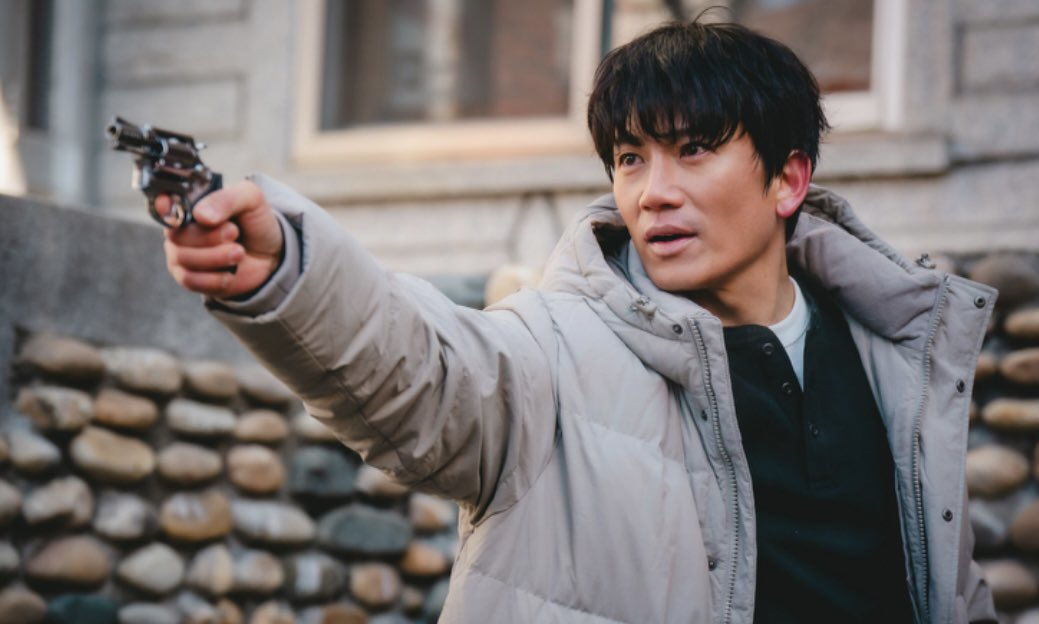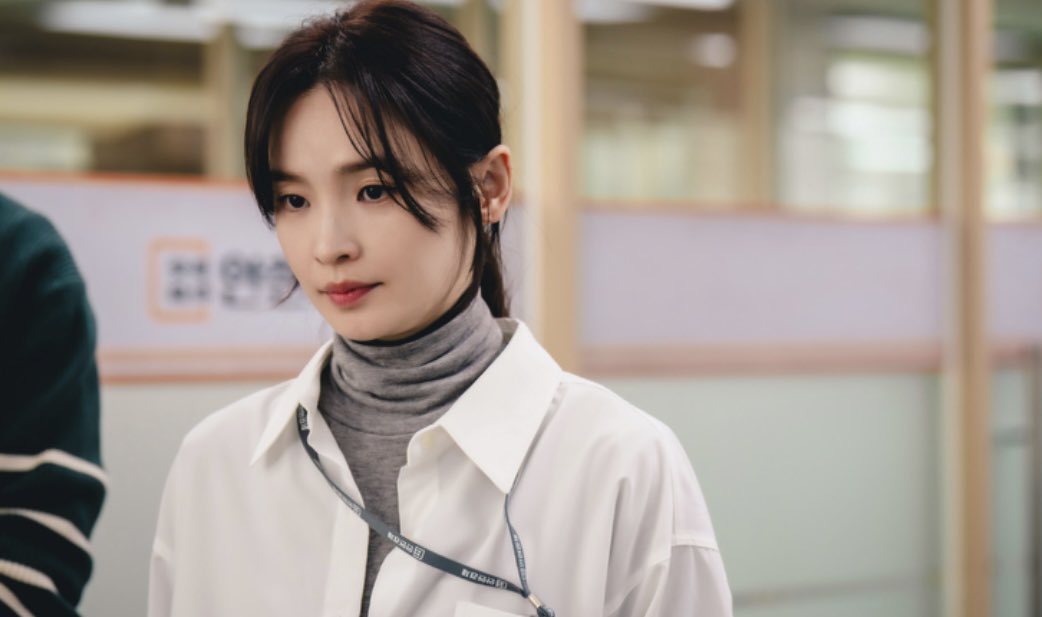 |
Kim Mun-kyo, director of "Connection," poses for a photo during a press conference held in Yangcheon-gu, Seoul, May 24. (Newsis) |
The director of SBS' hit series "Connection" said although he felt burdened to shoulder the responsibilities that came with broadcasting a TV series dealing with drugs, he wanted to explore a new territory with the series.
"Connection" is a 14-episode crime thriller series that centers on Jang Jae-kyung (played by Ji Sung), a detective specializing in apprehending drug criminals, who becomes a drug addict, ensnared by an unknown perpetrator.
"Connection" became the third most-watched SBS series airing on Fridays and Saturdays during the 2023-2024 period so far, with its final episode on Saturday recording a 14.2 percent viewership rating.
Currently ahead of it are "Taxi Driver 2," with 21 percent viewership, and "Dr. Romantic 3," which recorded a 16.8 percent viewership rating nationwide for its final episode in June.
Screenwriter Lee said her foremost goal with "Connection" was to depict the intricate dimensions of friendships.
"The core message of 'Connection' is the multifaceted nature and value of friendship," said Lee, in a recent written interview.
"Friendship is a unique bond that sits somewhere between being strangers and familial connections. I wanted to express how challenging it is for people to preserve this fragile and often fluctuating concept called 'friendship' without vested interests or ulterior motives, and consequently, how precious friendship really is,'" said Lee.
 |
Ji Sung stars in "Connection." (SBS) |
Director Kim said "Connection" was a challenging shoot. One of the greatest difficulties lay in handling sensitive topics such as drugs on TV while maintaining responsibility for its social implications.
"I had two concerns when shooting 'Connection,'" said Kim. "One involved the intention and the message 'Connection' was going to send to the audience. Given that this drama was presented on television, which has the broadest audience reach among various media, there was a concern about keeping the content within the boundaries of societal morals."
"I took a cautious approach to prevent sparking curiosity about drugs or lessening aversion to them. As a result, I carefully deliberated on establishing and adhering to a definitive stance on drugs in the series, handling the topic in a way that keeps drugs as an unfamiliar substance to the end, and ensuring not pique curiosity about drugs," he said.
"Another concern was about the level of explicitness in depicting drugs — how much should they be shown to keep viewers engaged without causing repulsion?" added Kim.
"To enhance the protagonist's challenges and raise awareness about drugs, we recognized the need for (drug) scenes that were somewhat uncomfortable (to watch). To manage the impact effectively, actors portrayed various versions of their roles, always deliberating and carefully selecting each portrayal," said Kim.
However, despite the challenges it brought, Kim maintained he never once considered removing the theme of drugs from "Connection."
"The impact of the drug theme was influential in making the decision to take on the directorial role. The premise of 'a narcotics detective becoming addicted to drugs' held a strong appeal and there was curiosity as a director to explore a new territory," he said.
"At the same time, considering the severity of the drug problem in Korea, I also believed there was timeliness in broadcasting such themes on TV," he added.
 |
Jeon Mi-do stars in "Connection." (SBS) |







